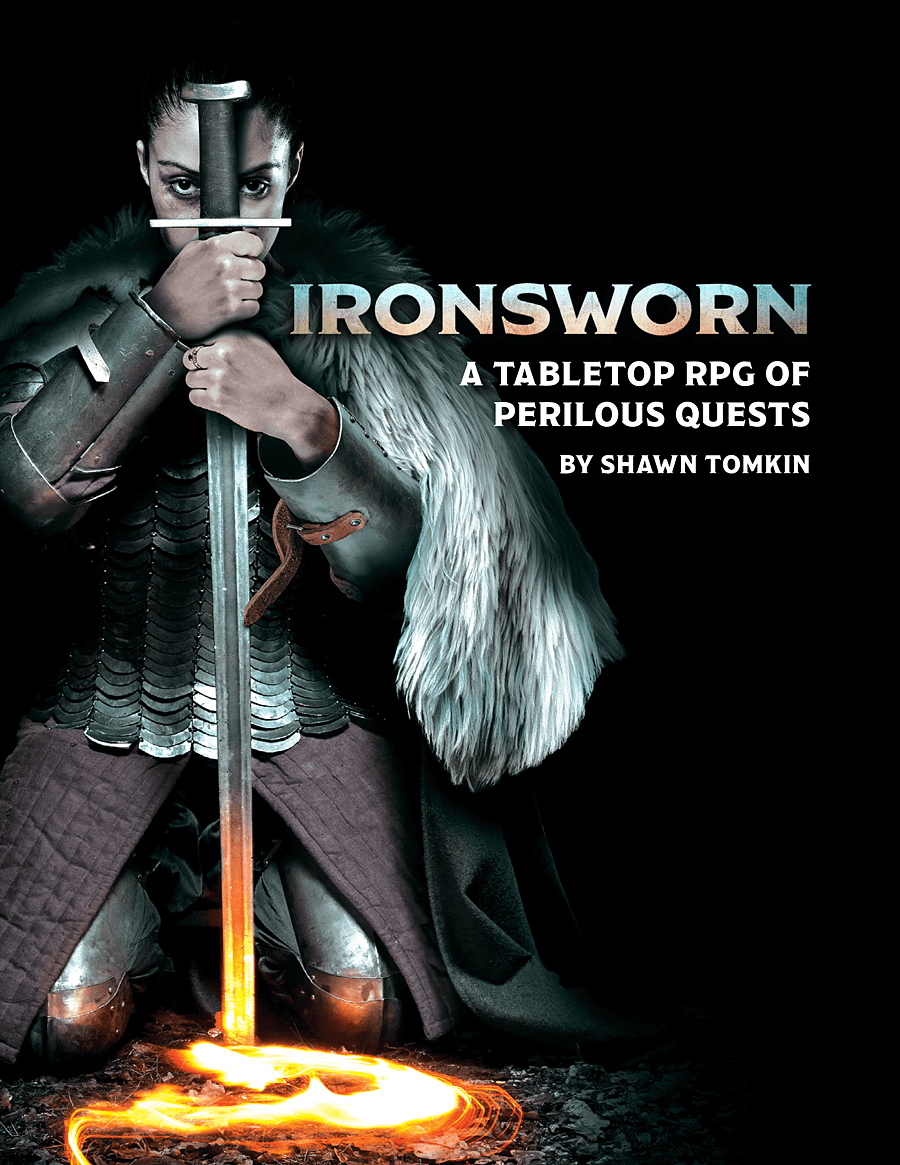Breaking Vows
By Anthony Casperson
2-22-20
A couple of different YouTubers have recently been playing this role-playing game called Ironsworn. The appeal for each of them seems to be the fact that there’s a solo mode. You don’t really need anybody else to play the game, even though other modes support group play.
The funny thing about this is that forging bonds with other characters is a big part of the game. (You play this game without anybody else, so that you can create relationships with imaginary people?) Anyway, this forging of bonds, as well as the leveling-up system, is dependent upon swearing an oath.
You come across a town with an orge rampaging the nearby countryside? Swear an oath to the village that you will protect them. Something unknown haunts the forest? Vow that you’ll uncover and deal with the source. And after you complete the pledge, you’ll increase your XP while also creating a bond with the town. Then rinse and repeat.
However, there’s always the possibility that your character won’t be able to complete a sworn oath. You vow to protect someone, but they end up dying because of bad dice rolling. Or you swear that you’ll go deal with some bandits, but the ordeal required more resources than you had available. In these situations, you have to break your vow.
Mechanically speaking, in the game system there are negative ramifications for not completing sworn oaths. But these consequences don’t seem to be overly drastic. At least as far as the people I’ve been watching play, it’s pretty easy to overcome a broken vow.
This perspective of a broken oath not really being all that bad is shared with much of our culture. We promise something, but as soon as difficulties arise the promise is thrown out the window. In many stories, we see this in the form of a parent promising to be there for their child, but the parent makes the choice to do this less-than-necessary work thing anyway.
You’ll notice that as soon as I started talking about our present oaths, I switched to the language of promise. And that’s largely because the idea of oaths and vows seem rather old-fashioned, except when it comes to wedding vows. But I don’t think I need to spend too much time talking about how “easy” it is to break that vow. Divorce happens all of the time in our culture. For any reason really.
Divorce is something that Jesus talked about in the Sermon on the Mount. In Matthew 5:31-32, he says that anyone who is divorced for any reason other than adultery is guilty of that very act as soon as they attempt to remarry. The only reason why the breaking of a bond as deep as marriage can be broken by divorce, is if the bond had already been broken because of marital infidelity.
Jesus continues in the next few verses by talking about other oaths as well. Vows before God, which includes marriage, are no small thing. They are binding to a degree that must be kept or else we suffer penalty.
Jesus even goes so far as to say that it’s better to never make a single vow in our lives, rather than to have to suffer the consequences of an unfulfilled vow. Though I would believe that Jesus’ speaking of marriage before this statement shows that he’s not advocating for all of his followers to live unmarried lives.
But what Jesus is doing here is showing that oaths are not just something we can shrug off with a mere apology. Oaths, vows, and promises carry significant weight in our bonds with other people. And for we followers of Jesus, we should never make one flippantly. We stand before God in every promise made.
And yes, that includes “little” promises just as much as great oaths and vows. Matthew 5:37 says to let our yes be yes and our no be no. Every time we say we’ll do something, let’s do whatever that is. When we say we won’t do this one thing, let’s never even have the thought in our mind.
In the Kingdom of God, loopholes to get out of our oaths, vows, and promises should never be considered, let alone pursued. The word of a follower of Jesus should be enough for anyone to know that we’ll act in line with it with our best ability. Sure, forgiveness can be found if we fail. But if we go into every promise and vow with an attitude of shoulder-shrugging, we’ll quickly discover those consequences. And we won’t like it.
It’ll mean far more than just losing out on some XP.




